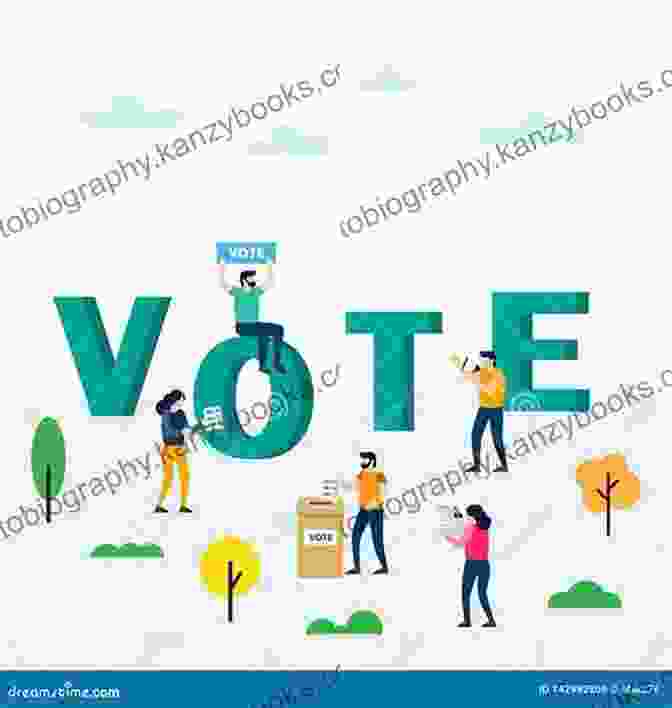E-Democracy, E-Government: Stages of a Democratic Knowledge Society

In the rapidly evolving digital age, technology has become an integral part of our lives, transforming the way we interact, communicate, and access information. This digital transformation has also had a profound impact on the way we govern ourselves, giving rise to the concepts of E-democracy and E-government.
E-democracy and E-government represent the use of digital technologies to enhance and strengthen democratic processes and government operations. These concepts empower citizens with greater access to information, participation opportunities, and the ability to hold their governments accountable.
4.9 out of 5
| Language | : | English |
| File size | : | 6346 KB |
| Text-to-Speech | : | Enabled |
| Screen Reader | : | Supported |
| Word Wise | : | Enabled |
| Print length | : | 236 pages |
E-Democracy: Stages of Development
E-democracy has evolved through several distinct stages, each characterized by different levels of technology adoption and citizen engagement:
- Information Provision: In the early stages of E-democracy, governments primarily used websites to provide citizens with access to public information, such as laws, regulations, and government documents.
- Interactive Communication: As technology advanced, governments began to offer interactive communication channels, such as email and online forums, allowing citizens to engage in direct dialogue with government officials.
- Citizen Participation: This stage saw the of online platforms and tools that enabled citizens to participate in decision-making processes, such as public consultations and online voting.
- Empowerment and Collaboration: In the most advanced stage of E-democracy, citizens are empowered to collaborate with each other and with government officials to develop and implement solutions to societal issues.
E-Government: Stages of Development
E-government has also progressed through a series of stages, focused on improving government efficiency, transparency, and accessibility:
- Online Services: In the initial stage, governments primarily offered basic online services, such as tax payments and license renewals, to enhance convenience for citizens.
- Process Automation: As technology evolved, governments began to automate internal processes, such as workflow management and document processing, to improve efficiency.
- Integration and Collaboration: This stage involved integrating different government systems and departments to provide a seamless and coordinated experience for citizens.
- Citizen-Centric Services: In the most advanced stage, governments focus on providing citizen-centric services that are tailored to individual needs and preferences.
Impact on Democratic Knowledge Societies
The adoption of E-democracy and E-government has had a transformative impact on democratic knowledge societies, leading to the following key benefits:
- Enhanced Citizen Participation: Digital technologies have lowered the barriers to political participation, allowing more citizens to engage in decision-making processes.
- Increased Government Transparency: Online platforms provide citizens with easy access to government information, increasing transparency and accountability.
- Improved Civic Engagement: E-democracy and E-government initiatives foster civic engagement and encourage citizens to take an active role in their communities.
- Empowered Citizens: By providing access to information and participation opportunities, E-democracy and E-government empower citizens to hold their governments accountable.
- Strengthened Democratic Values: The increased transparency, participation, and accountability fostered by E-democracy and E-government contribute to the strengthening of democratic values.
Best Practices for Implementation
Successful implementation of E-democracy and E-government requires careful planning and consideration of best practices:
- Citizen-Centric Design: Platforms and services should be designed with the needs and preferences of citizens in mind.
- Accessibility and Inclusion: Ensure that all citizens have equal access to and can actively participate in digital democracy initiatives.
- Data Security and Privacy: Implement robust security measures to protect citizen data and privacy.
- Transparency and Accountability: Establish clear mechanisms for transparency and accountability to build trust with citizens.
- Sustainability and Evaluation: Plan for the long-term sustainability of E-democracy and E-government initiatives and regularly evaluate their impact.
E-democracy and E-government represent transformative concepts that have the power to enhance democratic processes, empower citizens, and strengthen democratic knowledge societies. By embracing these concepts and implementing them effectively, governments can create more inclusive, transparent, and accountable political systems.
This article provided an in-depth overview of the stages of E-democracy and E-government development, their impact on democratic knowledge societies, and best practices for successful implementation. As technology continues to evolve, these concepts will continue to play a vital role in shaping the future of democracy.


4.9 out of 5
| Language | : | English |
| File size | : | 6346 KB |
| Text-to-Speech | : | Enabled |
| Screen Reader | : | Supported |
| Word Wise | : | Enabled |
| Print length | : | 236 pages |
Do you want to contribute by writing guest posts on this blog?
Please contact us and send us a resume of previous articles that you have written.
 Book
Book Novel
Novel Page
Page Chapter
Chapter Text
Text Story
Story Genre
Genre Reader
Reader Library
Library Paperback
Paperback E-book
E-book Magazine
Magazine Newspaper
Newspaper Paragraph
Paragraph Sentence
Sentence Bookmark
Bookmark Shelf
Shelf Glossary
Glossary Bibliography
Bibliography Foreword
Foreword Preface
Preface Synopsis
Synopsis Annotation
Annotation Footnote
Footnote Manuscript
Manuscript Scroll
Scroll Codex
Codex Tome
Tome Bestseller
Bestseller Classics
Classics Library card
Library card Narrative
Narrative Biography
Biography Autobiography
Autobiography Memoir
Memoir Reference
Reference Encyclopedia
Encyclopedia Barbara Neill
Barbara Neill Thomas Jefferson Ritter
Thomas Jefferson Ritter George Solt
George Solt Andy Roman
Andy Roman Andy Isidro
Andy Isidro Andreas Seebeck
Andreas Seebeck Terry Lemerond
Terry Lemerond Paddy Mcmahon
Paddy Mcmahon Adish Books
Adish Books Andrew Hills
Andrew Hills Zhi Gang Sha
Zhi Gang Sha Judy Press
Judy Press Aaron Ellis
Aaron Ellis Andy Charalambous
Andy Charalambous Harvey Frommer
Harvey Frommer Ivo Dominguez Jr
Ivo Dominguez Jr Sharon Paice Macleod
Sharon Paice Macleod Hannah Parkes
Hannah Parkes Jeff Huster
Jeff Huster Andrew Rankin
Andrew Rankin
Light bulbAdvertise smarter! Our strategic ad space ensures maximum exposure. Reserve your spot today!

 Raymond ParkerCommunity Acupuncturist Tales: Inspiring Stories from the Front Lines of...
Raymond ParkerCommunity Acupuncturist Tales: Inspiring Stories from the Front Lines of...
 Russell MitchellLectionary Devotional For Cycle: A Comprehensive Guide to the Liturgical Year
Russell MitchellLectionary Devotional For Cycle: A Comprehensive Guide to the Liturgical Year Rubén DaríoFollow ·9.5k
Rubén DaríoFollow ·9.5k Troy SimmonsFollow ·12.4k
Troy SimmonsFollow ·12.4k Sean TurnerFollow ·4.3k
Sean TurnerFollow ·4.3k Robbie CarterFollow ·15k
Robbie CarterFollow ·15k Clarence MitchellFollow ·14.3k
Clarence MitchellFollow ·14.3k Ernesto SabatoFollow ·18.8k
Ernesto SabatoFollow ·18.8k Arthur Conan DoyleFollow ·14.3k
Arthur Conan DoyleFollow ·14.3k Clarence BrooksFollow ·11.8k
Clarence BrooksFollow ·11.8k

 Emilio Cox
Emilio CoxAncient Wisdom for Your Healthy, Happy, and Beautiful...
In our fast-paced modern world, it can be...

 Justin Bell
Justin BellThe Bully Tales From The Sheep Pen: A Must-Read for...
Bullying is a...

 Duane Kelly
Duane KellyWhat Cancer Taught Me About Living And Dying: A Journey...
In "What Cancer Taught Me About Living...

 David Peterson
David PetersonMy Wee Granny's Soups and Stews: A Culinary Tapestry of...
Are you longing for the...

 Lee Simmons
Lee SimmonsEmbark on a Culinary Adventure with "Deviled Eggs: 50...
: Unlocking the Delectable World of...
4.9 out of 5
| Language | : | English |
| File size | : | 6346 KB |
| Text-to-Speech | : | Enabled |
| Screen Reader | : | Supported |
| Word Wise | : | Enabled |
| Print length | : | 236 pages |










